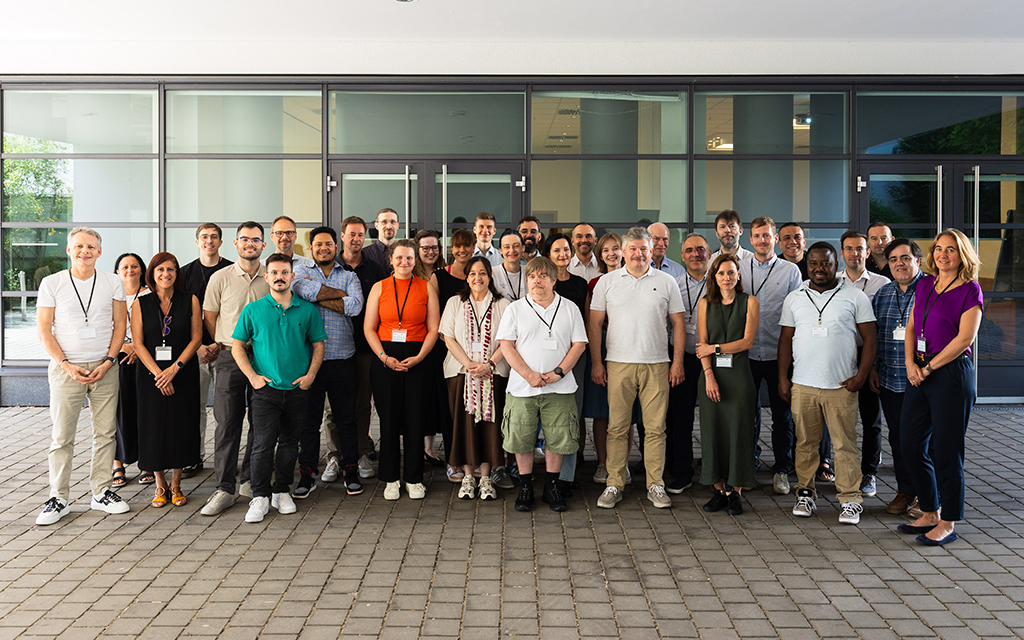ClimAIr consortium partners recently convened in Munich, Germany, for the Month 6 General Assembly meeting—a key milestone marking the first half-year of project activities. The meeting provided an opportunity for all work packages to report on progress, share insights, and align future priorities. With this in mind, we take a closer look at the achievements, developments, and foundational work carried out during the first six months of the ClimAIr project.

Foundational Deliverables and Ethical Frameworks
Among the key milestones is the submission of three foundational deliverables:
- The Initial Data Management Plan sets out strategies for data collection, sharing, and reuse, aligned with FAIR principles and GDPR compliance.
- The Requirements Analysis Report outlines technical and functional specifications for the project’s AI tools and modelling platforms.
- The Preliminary Ethical and Legal AI Framework establishes guidelines for data governance, ethical AI deployment, and privacy protection.
Together, these deliverables form a critical foundation for responsibly managing sensitive datasets and experimental results throughout the project lifecycle.
Geospatial Modelling and City-Specific Data
ClimAIr has achieved notable progress in the collection and harmonisation of geospatial datasets, starting with the cities of Berlin and Malaga. These datasets include:
- Digital terrain models
- Building height data
- Vegetation density
- High-resolution air pollution observations
Consolidated into GeoTIFF formats, these data layers enable urban-scale exposure modelling and will inform predictive tools to assess health risks. The methodologies applied in Berlin and Malaga will be extended to additional partner cities—Milan, Thessaloniki, and Lodz—in subsequent phases.
Technological Infrastructure and AI Modelling
At the heart of ClimAIr’s innovation is the development of federated learning infrastructure, enabling AI models to be trained securely across multiple local data nodes. This ensures sensitive health data remains decentralised and protected. In parallel, semantic data modelling protocols have been implemented to enable consistent data integration across diverse sources and disciplines.
These advancements support the creation of AI-powered predictive tools tailored for stakeholders such as health professionals, urban planners, and policy makers, enabling them to make evidence-based decisions on air pollution mitigation and health interventions.
Stakeholder Engagement and Scientific Collaboration
ClimAIr has conducted a comprehensive stakeholder mapping and analysis exercise to identify key user groups. Engagement strategies are tailored to meet the needs of:
- Healthcare providers addressing respiratory conditions
- Policymakers designing climate and air quality legislation
- Urban planners seeking data-driven environmental health solutions
The project has also joined EXPOHEALTHNET, a collaborative network of Horizon Europe projects focused on environmental health and non-communicable diseases, to align methodologies and maximise scientific impact.
Communication and Outreach Foundations
To support public visibility and knowledge sharing, ClimAIr launched its official website in February 2025, now functioning as the project’s primary communication platform. The site hosts information on project goals, consortium partners, deliverables, and upcoming events. Additionally, social media channels have been established and outreach materials developed to support interaction with stakeholders and the wider public.
Conclusion
The first six months of ClimAIr have been marked by critical achievements in data infrastructure, ethical governance, stakeholder alignment, and technological readiness. With these solid foundations in place, the project is well-positioned to deliver on its promise: to generate transformative insights at the intersection of climate change, air pollution and public health.
The next phase will focus on scaling predictive models, expanding data coverage across cities, and testing policy-relevant interventions—driving evidence-based strategies for a healthier, more resilient Europe.